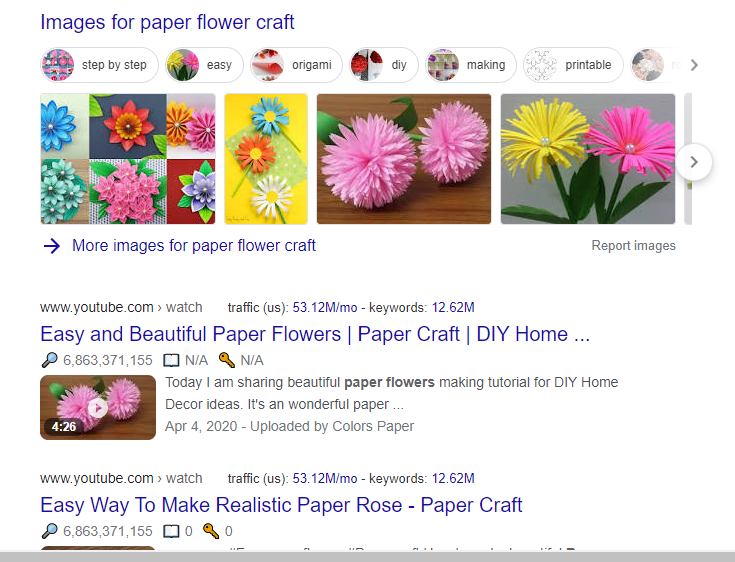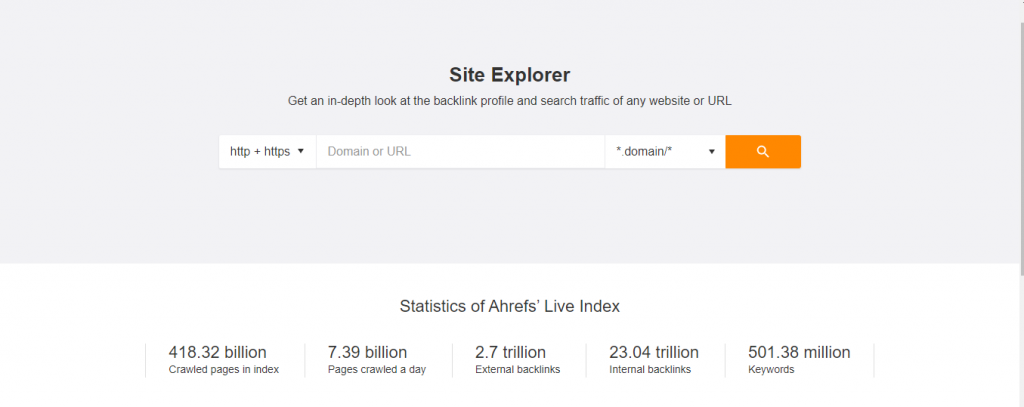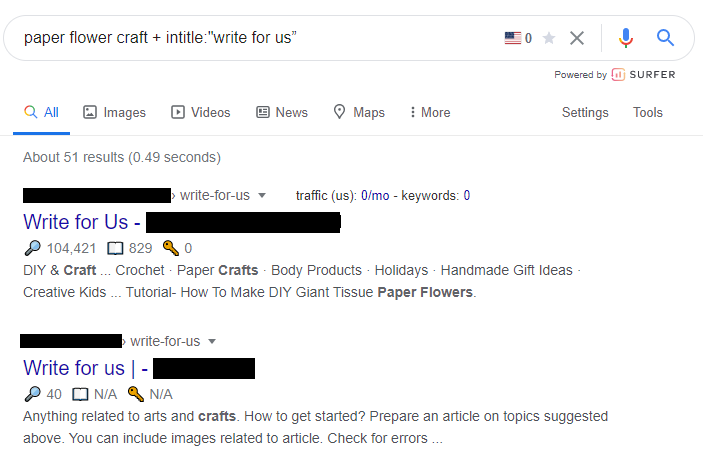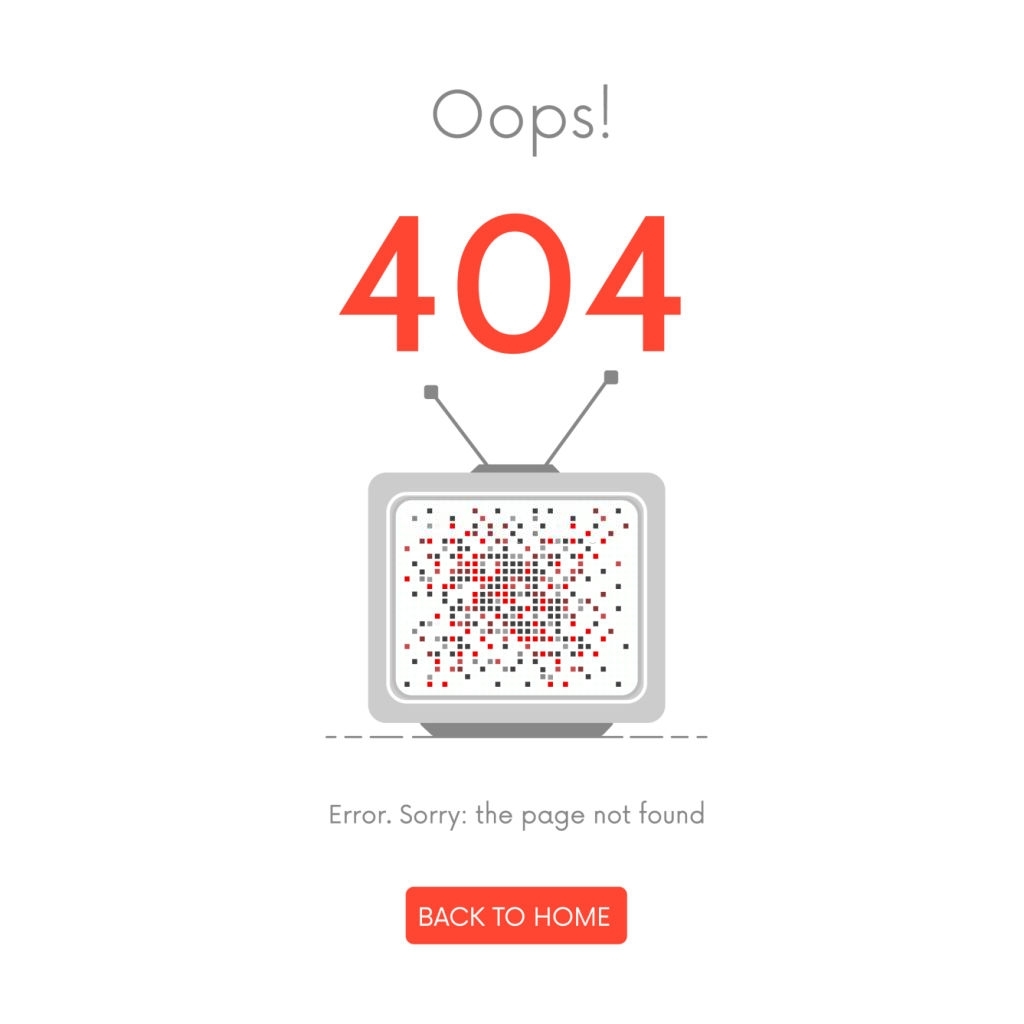If you are one of those who always stay updated about what’s going on in the world of SEO, you may already know about the latest core algorithm update that Google launched on 2023.
The update was one of the biggest after the first update from January.
While some websites saw a spike in their rank, some had to experience a drastic fall in their ranking on the SERP.
Whether you have survived this update or not, you may want to avoid further loss considering any upcoming algorithm update from the search giant.
That’s why it’s crucial that you take preparation from now on.
But, how are you going to survive an update that you may not have any idea about? It may sound difficult but not impossible if you follow the right link building strategy.
In this article I am going to tell you about the latest Google’s algorithm update, how it works, why it affects you and others, and the ways to survive it throughout 2023.
The Essence of a Core Google Algorithm Update
If you are wondering why Google emphasizes so much on the Core Algorithm updates, you must understand the Google’s objective here:
To make the search giant intelligent to identify and present the most relevant information the searchers are looking for.
While some of the updates aren’t as big as the core updates, those can leave some impacts on your rankings too.
The essence here is, Google develops its algorithm based on what it learns from users and continuously develops itself to ensure a better search experience for them.
When there are some major changes in the search algorithm, you will usually get notified before the launch.
These are known as “core updates” and they are designed to make sure searchers are served with relevant and authoritative content.
With every update, it tends to become more intelligent at detecting the most relevant information for every search queries, and the process is supposed to go on.
So, who wins these update games, and who loses?
Obviously, those who violate Google’s webmaster guide eventually end up losing their rank after each update.
So does that mean, there are no hopes?
Obviously not!! Smart SEOs will always keep in mind Google’s core essence built around some factors like-
- Understanding search intent
- Developing Quality content
- Authoritative link building
If your websites that lack these factors will surely face serious problems.
Now I know it for a fact, you have gone through several other guidebooks or contents like this that talks about how to build your authority with the content and SEO strategy.
But I could not find a solid one that gives a precise and definitive guide to link building which can secure success on a LONG TERM basis.
When you read through this article, you will find the guidelines which will surely help you survive past all the coming Algorithm updates
Draw The Link Building BluePrint:
Imagine your friend has recently experienced a huge SEO success with a particular link building strategy.
Being amazed by his achievement, you asked him the secret and did exactly what he did for his site.
Unfortunately, the result was different for you.
Instead of experiencing a huge boost in your ranking, you’re now dealing with almost a dead site with no traffic at all.
Do you know why this happened?
It’s because you blindly followed someone else’s strategy without having a proper idea on your site.
But how would you know which strategy you must follow?
A complete SEO audit can help you.

An SEO audit not just refers to reviewing your site’s on-site ranking factors such as keyword optimizations, mobile friendliness, site responsiveness, and crawlability.
But also, the comprehensive SEO audit will help formulate the SEO strategy like finding your competitors’ referring domains, keywords they are ranking for, finding the low hanging keywords etc.
This way you will know how many backlinks from which category you might need to get a rank with your target keyword.
If you’re confused about why and how to conduct an SEO audit for your site, you can check this useful checklist provided by Brian Dean.
By properly analyzing your site, the auditor can suggest customized solutions tailored for your website that can boost your organic traffic and improve your ranking.
Evaluate the Quality of Domains for the Backlink:
Another important x-factor for your link building success is the quality of the sites you are getting the backlinks from.
Like most people, you might be busy getting so many backlinks, thus forgetting to look into their quality.
Evaluating your prospective domain’s quality is a must if you don’t want to end up getting a low-quality PBN.

While a relevant, good backlink can boost your SEO, getting a bad one can vanish your years of hard work and patience in a snap.
So, how do you determine if a website is qualified to give you a backlink?
There are some metrics such as organic traffic, domain authority, site age, referring domains, etc. that can help you to find a good one.
Among all these parameters, organic traffic is one of the best ways to determine if the backlink is a good fit for your site.
Having a good organic traffic means the site is authoritative and trustworthy, hence linking to your page can boost your traffic as well.
Like the organic traffic, domain authority (DA) can also help you to determine a site’s expertise in a given niche.
It’s a metric used by Moz that determines a domain’s quality by the websites and pages linked to it.
You must also consider getting backlinks from sites that write about a specific niche or multiple niche.
It might be a case that your referring domain writes about your niche, but seemingly more popular for another niche which is way far from your subject.
This might give a signal to Google that you are obtaining a backlink for the sake of rank optimization, thus rewarding less link juice.
Apart from these, there are some other factors that you need to consider.
For example, you must avoid getting backlinks from a relatively new website, as well as from sites having similar IP addresses.
Always check if the anchor texts they use in their other content are naturally placed and linked to a relevant page.
Make sure the page you want them to link is placed within the content, not in the header or the sidebar.
Also, do not forget to check if those websites have a strong social media presence.
If the site fails to fulfill these qualities, skip it for the sake of your ranking.
Do a Proper Keyword Research
Whether you’re creating content for your site or looking for a quality backlink, keywords are a must.
That’s why you need to start with proper keyword research before you start outreaching for link building.
One way to ensure you get a permanent do-follow backlink is to make sure your article adds value to the site you are guest posting on.
When you have a clear picture of the keywords the site is already ranking for, and you build your content for the guest post around those target keywords, you are not just securing a backlink, but a pretty solid one that the webmaster can leverage from as well.
There are some free and premium keyword research tools such as KWFinder, Ahrefs, Ubersuggest, etc. that can help you find the right keywords using some metrics like keyword difficulty, search volume, etc.
While conducting keyword research, don’t just select a keyword based on its difficulties and volume.
Make sure the keyword you’re choosing can fulfill the search intent.
Otherwise, you might end up optimizing your target page for the wrong keyword.
For example, if your site is about health and fitness that focuses on women, opting for the keyword “fitness” may not be a good choice for you.
The keyword is too common to attract irrelevant audiences. That’s why you need to narrow down your search and go for a relevant keyword like “fitness for women.”
Besides, without proper keyword research, it will be difficult for you to find the right domain for your backlink.
The bonus? It will further enhance your prospecting as you will find the other sites who are trying to rank for the similar keywords.
And, you can keep track of those sites for further link building.
This will essentially solve the problem of getting poor ranking due to a higher bounce rate whenever there’s an algorithm update from Google.
Find Out Why Your Competitors’ Are Getting Higher Rank:
Ever wonder why other websites from your niche are doing amazing while you’re struggling with your ranking??
One of the many reasons might be the backlinks they got.
While you may have better content on your site, your competitors may outrank you with some quality backlinks.
One of the easiest ways to find prospecting domains for your backlink is to identify who your competitors are getting the backlinks from.
So instead of reinventing the wheel, make a list of those sites, carefully analyze those sites, short-list the one you think best-suit you.
Tools like Ahrefs, Moz, etc. can help you to find out those backlinks, and once you get them, determine whether these links are worth trying by using the metrics mentioned earlier.
However, you should always remember that you must know more than your competitors to outrank them.
So, use your best judgement and try finding similar sites that belong to the niche.
Content Research- The Game Changer:
As I mentioned, the ultimate objective for all Google Algorithm Updates is to ensure the searchers get as closely accurate and detailed information as possible for all their search queries.
That’s why it is highly crucial that you do a proper research on what is available on the web.
Put yourself in the shoes of the searcher who is searching with your target keyword to solve a problem or make a decision.
Now read the content which is already ranking for it, and see if the content will help you completely to solve the problem.
If the inner answer is no, do an extensive research with the help of some content research tools, and build an article that will help the searchers in a better manner.
Google and other search engines tend to provide their users with most relevant search results, ensuring they get exactly what they are looking for.
You might also notice a particular keyword that may fit into different types of content, but not each of them will be a good fit for your website, as well as your target audiences.
For example, if your site is in a craft niche and you want to use the keyword “paper flower craft,” you will see the search result is showing mostly tutorials on how to make one since the users are looking for it.

However, if your audiences are mostly looking for places or online shops from where they can buy paper flowers, creating such content and getting a backlink for it may not be a good idea.
Strategic Link Building:
The key here is to go for quality link building instead of focusing on quantity.
If you want your site to rank higher even after there’s a core algorithm update from Google, you need to put an extra effort in quality link building.

A natural in-content backlink from a niche-relevant and authoritative site does not send link juices and enhance your trust flow.
It will also drive traffic to your site, you care to read more about the topic, which will positively impact the page’s bounce rate.
This will also be recognized by Google in terms of relatedness of your target backlink to the keyword the search user used to read the guest post article.
So when you guest post on a site, be absolutely sure of its relatedness to your content.
Say No to the Quick Wins:
I hate to break it to you, but SEO is a game of patience.
If you are believing all the BS that says “follow this and get your site ranked in 2 weeks”, you are living in a fool’s paradise.
Time to time, you will be tempted to go with cheap and low-quality PBNs or link farms, which will give you backlinks just for the sake of business.

Now that you know how much Google hates to find sites that send its traffic to an irrelevant link, it will be absolutely unworthy to spend even a penny on this.
No matter how convenient the “quick wins” sounds, you are going to be an enemy in the eyes of Google, when you make friends with PBNs or Link-farms.
I have come across many people,who, instead of going for quality backlinks from reputed sites with real traffic, opt for low-quality PBNs and link farms, thinking that these will give them a quick spike in the ranking.
Some of them will even say, “I have seen some movements on the rank after going for these PBN links”.
Trust me when I say this!
They are the one who lose their rank after the Google Algorithm Updates.
While you can enjoy good ranking for a certain time, those PBNs will eventually be wiped out by Google.
And since all your backlinks will be gone, you will see a drastic loss in your ranking.
So my advice will be, please keep yourself distant from irrelevant backlinks.
Even if that takes time and may be a gallon of coffee, go for legit manual outreach campaigns.
Find Niche-Relevant Backlinks:
I am sure you have seen many looking for backlinks, who simply do not care which niche the site belongs to.
Now, I want to ask you a question. Would you go look for Japanese food in a burger shop?
No, right? Then why would you look for a backlink from a site that serves an entirely different niche?
Now, the question comes: how will you know that a site is worth getting a backlink from?
First of all the domain must be relevant to your niche. Besides-
- The site must have a good number of monthly organic traffic
- The content of the site must be relevant with your niche
- The links should be indexed properly
- The articles are optimized for relevant organic keywords.
If a website fulfills these conditions, you know you can get a backlink from this site with a low possibility of getting penalized by Google.
You can use some tools like Ahrefs or Moz to check the domain rating/authority, and monthly organic traffic of a particular site.

Once you determine which websites you’re selecting for backlinks, reach them and introduce them to your content.
It’s a time-consuming process, but the result will be truly satisfactory.
Build Relationships with the Publishers, not Just a Backlink:

Find relevant sites that talk about the same things your target URL talk about through the Keyword research I just discussed.
And, please do not send template based emails your SEO gurus suggest. That might work for one webmaster or a hundred, but not for everyone.
Because you are going to be writing to real people, not computers.
If they see you do not care to spend a few minutes to check what s/he cares about, it’s quite logical that you will not care much about the site’s best interest.
As I mentioned earlier, your guest post article is a bridge between your site and the publishing site.
If you get a backlink from a website that’s not relevant to your niche, you will not be able to attract any readers to your site, and all your effort in link building will go into vain.
So, try explaining the publisher of the site about the connection in a short and precise manner.
And, as I mentioned, they are human too.
So even after checking your email, they might forget to revert back.
Please, set a reminder to give them a follow up in a few days, if they do not reply.
Create a Killer Content for Guest Posting:
So, you’ve done with your keyword research and got the website you want a backlink from.
Now, it’s time to write an article that they will publish as a guest post.
This is where you need to put an extra effort!!
No matter how good the publisher’s domain is, you may not get the desired result if your content isn’t well-written.
Don’t write content just for the sake of getting a backlink.
Make sure the article you’re content is:
- Well-researched
- Long enough to fulfill the readers’ search intention
- Properly optimized for the target keyword
- Free from grammatical error

Only a value-driven, well-written content can attract the readers and make them stay longer on the site.
The more audiences the publishers get, the easier it will be for you to get their attention and rank eventually.
And, trust me Google loves content that precisely answers all the questions that the readers might think of while searching with a particular keyword.
So, put yourself in the reader’s chair, and ask yourself is that enough?
If you feel there’s still a tiny bit of scope to deliver something more, go ahead and do that. Rest assured, you will get the reward.
Besides, no real website with organic traffic and good authority would want to publish an article that is full of error and doesn’t bring any value to their readers.
Opt for Naturally Occurring Anchor Text:
Anchor text is the clickable text with a hyperlink that will take the readers to another site you want a backlink for.
That’s why it’s crucial to find the right anchor text for your content.
While creating content, most people just focus on somehow linking their site to that content and end up using an anchor text that doesn’t look natural.
This is particularly harmful since readers usually don’t feel like clicking that link.

Also, placing anchor text unnaturally makes it look fishy to Google, and you may lose your rank for doing so.
If you don’t want to face such penalties, make sure the anchor text you’re using blends naturally within the article.
Give Out Links to Relevant Resource Articles:
One way to ensure that you get a permanent do-follow backlink is to give links to reference contents and sites you have used while writing this piece.
The key benefit here is, when you give link to credible sources several in your article and place your target backlink within a naturally occurring anchor text, it becomes difficult for google to find out which of the backlink was given for the purpose of rank optimization.
On top of that, linking out to credible sources often opens the door to create a conversation with niche authoritative figures, which might lead you to getting a backlink from that niche authoritative site in the future.
And, last but not the least, if you are using someone’s content for delivering a valuable piece to the reader, giving a backlink is a courteous way to say ‘thank you’ for the hard work the author has done.
Make Sure The Content is Long & Informative:
You may have already heard that the longer the content, the easier for it to rank.
But most people get confused when it comes to determining the right length of an article.
In my experience, I have seen content that is about 1000+ to 2000+ long usually rank well in Google. However, the ideal length of an article sometimes depends on the niche and the topic.
It’s because those articles can cover almost everything a reader is looking for.

However, don’t put any unnecessary words just to make it long.
Make sure the content is:
- Highly informative
- Research-driven
- Cited where necessary
This will ensure readers don’t need to look into somewhere else for a particular relevant information, which they were expecting in your content.
A long, informative is crucial if you want to secure a backlink from a high authority site.
Those sites value their readers’ choice and will never accept your content if it can’t fulfill their criteria.
Say No to “Write for Us” Backlinks:
Guest posting is one of the oldest and most effective methods in link building.
The process is quite simple!
You write an article for the publisher, they publish your content, linking it to another page from your site, and you get your backlink.
While the process is quite simple, it’s one of the most powerful methods since it gives you control over the keyword you want to rank for.
You know exactly where to put the link of your page and how to put the anchor text naturally within the content.
But how are you going to find a good prospect for your guest post?
One common way is to go to Google and type in the search bar –
topic + intitle:”write for us” or topic + intitle:”guest post.”
However, this is an extremely common method and sites like these get tons of guest posts every day.
Also, we don’t suggest you get backlinks from those sites since it may not secure your ranking for a long time.

Instead of opting for these so-called “write for us” pages, simply search for good and relevant websites and approach them.
While most of these websites don’t explicitly state that they are receiving guest posts, some of them will surely accept a well-written, great piece of content that has the potential to attract audiences to their sites.
Since guest blogging seems to be quite natural to Google, it’s one of the safest methods to secure your backlinks.
Track Your Backlinks & Consider Link Reclamation If Necessary
Link building is difficult and takes quite a lot of time. So, once you get a backlink from your desired site, you don’t want to lose them.
But, things don’t always work the way we want them to.
While you’re busy getting new backlinks, you may be losing some of your old backlinks that used to bring a massive amount of traffic to your site.
This happens particularly when the publisher edits the content and mistakenly removes the link of your site.
You can also lose a backlink when the linking page is suspended.

If the link gets removed from the publishers’ end, you can reclaim the link.
Simply email them, gently asking to add the link back to the content. Remember, don’t be pushy when you do that.
Tracking lost links isn’t that difficult. You can simply use some tools like Ahrefs and find the links with the “link removed” tag.
Reclaiming links is crucial since it will save you a great amount of time you were planning to get a new backlink from a new site.
And while getting the desired ranking from a new backlink will take some time, reclaiming old backlinks can ensure you’re safe when there’s an update from the search giant.
Final Thoughts
Link building isn’t difficult, but it requires time and patience.
All you need to do is to follow the above-mentioned tactics to get a quality backlink from a real site with real traffic.
Your backlink profile is one of the most crucial factors to determine how you’re going to survive when there’s a core update from Google.
Since the search giant is getting smarter in how it handles link building, there’s no way you will be able to escape from its wrath with low-quality link building.
So, take your time and be smart with your link-building strategy.
Do proper keyword research and give some effort in creating quality content for your guest posting.
You may not get any quick wins, but these link building strategies will make sure you can survive any Google Algorithm updates at your fullest.

Sujan Sarkar is one of the co-founders of OneLittleWeb. He leads the agency with over a decade of experience.
In 2018, he founded OneLittleWeb, driven by a vision to fill a void in the industry, providing top-quality SEO and backlink services.
His impressive track record includes crafting over 25,000 backlinks for more than 1100 clients, generating over 1 billion in traffic. This has earned him a significant presence in the SEO realm.
He successfully leads a dedicated team of 65+ SEO professionals, focused on helping SaaS and Enterprises scale their organic traffic.
Sujan firmly believes that the best backlinks are not paid for but earned through high-quality content and strategic relationships.
Every day, he works tirelessly to position your business at the forefront of your customers’ minds, striving to elevate your brand’s visibility and authority.
His daily inspiration centers around securing client features on top-tier publications like Forbes, MSN, BBC, Yahoo, and many more. He leverages the right SEO strategies to achieve this mission.



